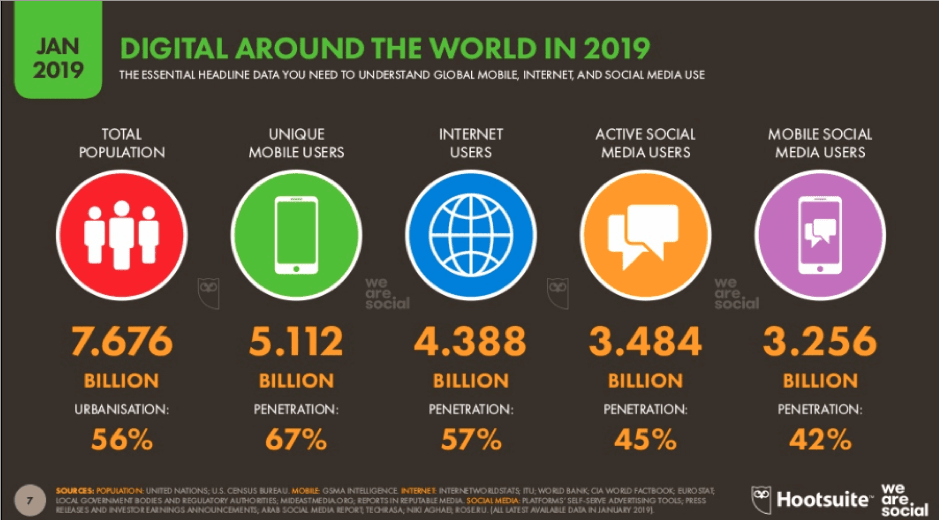- Here are 10 of the most important “Rhonda’s Rules” for small business success: 1. Go small to grow big. Facebook wasn’t the first social media platform. There are lots of advantages to.
- 3 Simple Rules for Social Media Social media guidelines for Minnesota United Methodists No. 1: Do no harm One of the benefits of social media is that it provides the opportunity to share views, thoughts, joys, and concerns about all areas of life. Our social media contributions can be very effective tools for ministry if we apply caution before we.
I still feel that many businesses place Social Media as one of the extra things they have to do alongside running their business, taking phone calls, replying to emails, updating their website, chasing invoices etc… But I also feel that a warning should be made that if you are not properly using the likes of LinkedIn, Twitter and Facebook then you do so at your own peril.
Simple Rules for Social Media Success. I still feel that many businesses place Social Media as one of the extra things they have to do. Social media can exacerbate feelings of disconnect and put children at higher risk for anxiety. 92: 6 Ways to Start Your Life Renovation Now 3 Rules for Turning Stress Into Success. Ten simple rules towards healthier research labs. PLoS Comput Biol. 2019; 15(4): e1006914. View Article PubMed/NCBI Google Scholar 4. Nakagawa S et al. A new ecosystem for evidence synthesis. Nature Ecol Evol. 2020; pmid:32203483.
Time and time again now, businesses are gaining enquiries and new clients via social media, they are building their brand awareness online and importantly also building their following – Going forward, in internet marketing terms, they are building their own communities which they will have available 24/7 to market to.
Taking a look at things in simple terms, success on social media is really down to two things, the quality of your presence and the quality of how you interact.
3 Simple Rules For Social Media Success Strategies
Know your Business and Know your Social Media Channels
The are now quite a few social media channels to choose from, more and more are entering the scene and some are very target to the community that you could be after. Within the UK property industry, I would recommend you take at look at Twitter, LinkedIn with Facebook, Instagram, Periscope and Youtube also worth a look over.
Remember, that nearly all of the people you are looking to target will be using social media, it is important you know your target audience and the channels they are most likely to be using.
Your Social Media Profile
Once you have set yourself up on the social media channels you feel are most suited to your agency, you need to get that right look. You may very well struggle now to get the name you wanted on social media, ie CarterEstateAgents, so you need to chose the next best or closest name and importantly, brand your social media account as per the rest of your marketing, ie logos, colours, descriptions, contact details etc.
A professional looking profile will have the edge over a standard or non branded account (many estate agents still have very poor branding on social media). Take time to make sure that you have consistency across all your social media channels, not only design, but if you can in name also so your username is the same on each platform.
3 Simple Rules For Social Media Success Napoleon Hill
Start Posting and Continue Posting Content

You’ll now be at a stage where you need to start sharing content on your channels, you can not rely on simply ‘This is my first tweet’ or ‘Yeah, we have now joined Facebook!’.
What will draw eyes to you is the content you share and how you engage with others on social media. You must ‘be social’ on social media, think about the basics such as a ‘good morning to all our followers’ or ‘interest rates stay at 0.5%, what are everyone’s thoughts?’ or if others have shared similar then comment on them, ie ‘Good morning back to you guys’ or ‘we suspect they’ll be no increase for several more years!’.
Regular content is good, people will start to rely and get to know your habits quickly, if you share regular educational, engaging and entertaining content is always best. Type of content is important, people loves photos and videos so try and use these to compliment your posts.
Build Relationships
As mentioned above, comment on other people’s content and words. Let others know you appreciate their social media presence too, retweeting, liking, sharing and more tells someone you have taken time to appreciate what they have shared and this kind of activity will help to build your own following.
Take things further by growing communities by using the likes of groups on Facebook, if you have time then the likes of a ‘Property in Sheffield’ or ‘First Time Buyers Chiswick’ will enable you to draw a highly target audience which could be invaluable to your business going forward.

Make sure you are active on social media and know when people have engaged with you. Reply to comments, thank people for their interactions even reply to those outside of your network (you can search social media channels, ie ‘problem with estate agent London’ and you can get in on conversations).
In his book Three Simple Rules: A Wesleyan Way of Living, retired United Methodist Bishop Rueben P. Job uses John Wesley's three general rules to give Christians a guide for living a faithful life. The book is published by the United Methodist Publishing House.
The rules from Wesley, the founder of Methodism, are simple: 'Do no harm. Do good. Stay in love with God.'
These rules also apply to how we live our online lives in social media. The Rev. Dan Gangler, director of communications in the Indiana Conference, expanded on Job’s ideas in his article “3 Simple Rules for Social Media.” Michael Rich, communications coordinator in Western North Carolina Conference, did the same in his article “Social Media – 3 Simple Rules.” Both advise ways to follow the rules when using social media.
Rule #1: Do no harm.
Job writes, “To do no harm means that I will be on guard so that all my actions and even my silence will not add injury to another of God’s children or to any part of God’s creation.” Doing no harm means respecting the cultures and life situations of those with whom we minister.
When we engage with others online, we may forget that living, breathing people with thoughts and feelings are on the other end of the digital conversation. With almost 70 percent of all communication being nonverbal, we may easily misunderstand what someone is trying to convey or how another interprets our intentions. It is easy to focus so much on proving a particular point that we cause unintended harm.
When engaging in social media activities, take the time to discern both the intention and the potential consequences of online engagement:
- What is the intent of the post? Does it show Christ’s love or does it focus on judgment and condemnation?
- Do I speak disparagingly about anyone involved? Do I try to use facts and opinions to manipulate others to my viewpoint?
- Could this post “do harm” to the reputation of Christ, the church or another person or organization?
- Could someone interpret the post as harmful, offensive, rude or distasteful?
- Does this interaction recognize each person involved as a “loved child of God – a recipient of love unearned, unlimited and underserved – just like myself”?
Rule #2: Do good.
Job writes, “My desire to do good is in response to God’s invitation to follow Jesus, and it is in my control. I can determine to extend hospitality and goodness to all I meet.” Doing all the good we can means to engage others proactively in a way that “nourished goodness and strengthens community.” Assess every word and act to determine if it brings God’s grace and goodness to others.
3 Simple Rules For Social Media Successful

3 Simple Rules For Social Media Success Skills
Read more at UMCOM.org
Article written by Eric Seiberling
